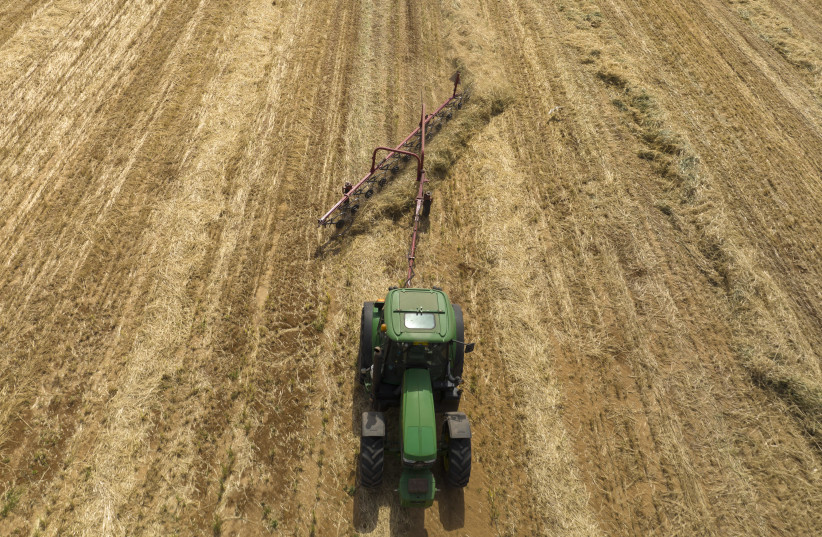Many experts claim that the process of developing and adapting advanced technologies in the field of agriculture needs to increase urgently in order to feed the growing world population.
This claim has been strengthened recently with the global shortage of wheat due to Russia’s invasion of Ukraine, a major wheat producer, and noticeable increases in prices in Israel and in many other countries.
Lavie Bio, a subsidiary of Evogene, is a biological agriculture company that strives to bring innovation to the global food industry. The company specializes in developing products based on microbiome, bacteria found in the plant's natural growth environment, to help improve the yield, quality and sustainability of crops.
The company’s recent product makes it possible to significantly increase the wheat crop thanks to a coating for the wheat seeds, which helps plants optimally receive nutrients from the soil such as phosphorus, sulfur and iron and thus increase crops.
The company states that these improvements in wheat’s nutrient utilization lead to improved resistance to changing and difficult environmental conditions such as less water availability, climate changes and adaptation to growing areas.

What does Lavie Bio's new product do?
This development was made possible by means of a computational technology engine called MicroBoost AI developed by parent company Evogene. This engine combines advanced computing capabilities of big data and artificial intelligence alongside extensive biological knowledge.
The product was launched this year for the first time in North Dakota after extensive field trials which lasted for four years. Trials showed that using this product can contribute to an increase of about 3-4 bushels (90-120 kg) of crop per acre (1 acre = 4 dunam).
Ofer Habib, CEO of Evogene, stated that it’s urgent to quickly advance the transition from low-tech agriculture to agriculture based on advanced technologies, which will lead to increased yields and improved durability alongside a reduction in costs while emphasizing sustainability.
Biotechnology companies are leading this trend through innovative and knowledge-rich products which support both farmers’ and environmental needs. He adds that solutions are needed to major challenges facing the global agriculture industry and humanity within the next few years.
Also, Habib says that not investing today in advanced technologies to improve crops will lead to a difficult and even dangerous crisis for all people. It sounds like a prophecy of wrath but it’s a rolling snowball that must be stopped now.
There’s an immediate need for solutions to increase wheat yields and other crops, and the way forward is through innovative, groundbreaking scientific and technological developments.
